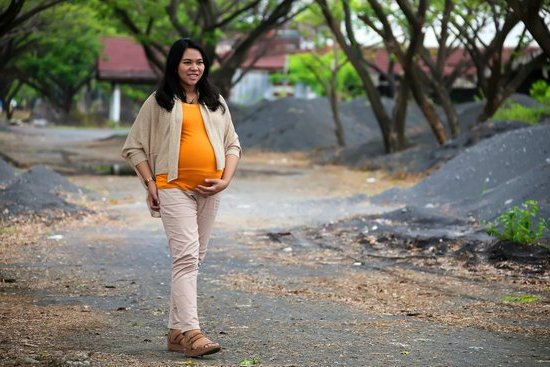Is diarrhea an early sign of pregnancy? Many women experience a range of physical symptoms in the early stages of pregnancy, including gastrointestinal issues such as diarrhea. Understanding the potential signs and causes of diarrhea during pregnancy is important for expectant mothers to ensure their health and well-being. This article aims to provide valuable insights into the relationship between diarrhea and pregnancy, exploring the hormonal changes, symptoms, management strategies, and common concerns associated with this condition.
Pregnancy is a transformative phase that brings about various physiological changes in a woman’s body. These changes can manifest in different ways, including gastrointestinal disturbances such as diarrhea. It is essential for women to be aware of these early signs and symptoms to take necessary measures to maintain their health throughout their pregnancy journey.
In this article, we will delve into the factors that can cause diarrhea during pregnancy, distinguish it from other common symptoms like morning sickness, discuss the role of diet in managing gastrointestinal issues, and explore when seeking medical attention becomes necessary. Additionally, we will provide tips for managing diarrhea at home using natural remedies and lifestyle adjustments, as well as addressing other early signs of pregnancy such as nausea, fatigue, and breast tenderness.
Let’s unravel the complexities surrounding diarrhea as an early sign of pregnancy and learn how to navigate through this delicate period with confidence and knowledge.
What Causes Diarrhea During Pregnancy
Many women wonder, “Is diarrhea an early sign of pregnancy?” The answer is yes, it can be. Diarrhea during early pregnancy is often attributed to the hormonal changes that occur in the body. The increase in hormones such as progesterone can affect the digestive system and lead to loose stools or diarrhea.
During pregnancy, the body produces higher levels of progesterone, which serves to relax the muscles in the uterus to accommodate the growing baby. However, this hormone also affects other muscles, including those in the digestive tract. As a result, food moves more slowly through the intestines, leading to potential constipation. On the flip side, this slower movement can also cause diarrhea in some pregnant women.
It’s important for pregnant women experiencing diarrhea to stay hydrated and eat a balanced diet. Additionally, they should consult with their healthcare provider if they have concerns about their symptoms or are unsure about how best to manage their condition. Below are a few tips for managing diarrhea at home during pregnancy:
- Stay hydrated by drinking plenty of water and clear fluids
- Incorporate probiotic-rich foods such as yogurt into your diet
- Avoid spicy or greasy foods that may exacerbate diarrhea
- Consume high-fiber foods like fruits, vegetables, and whole grains to regulate bowel movements.
By understanding the causes of diarrhea during pregnancy and implementing lifestyle and dietary changes, women can manage this symptom effectively and minimize any discomfort associated with it.
Differentiating Between Diarrhea and Morning Sickness
During the early stages of pregnancy, many women experience gastrointestinal symptoms such as diarrhea and morning sickness. It is important to understand the differences between these two conditions in order to properly manage them. Diarrhea is characterized by loose, watery stools and can often be accompanied by abdominal cramping, while morning sickness typically involves nausea and vomiting. However, some women may experience both diarrhea and morning sickness simultaneously, making it challenging to differentiate between the two.
Symptoms of diarrhea during pregnancy can include frequent loose stools, dehydration, abdominal pain or cramping, and an urgent need to have a bowel movement. On the other hand, morning sickness is often marked by feelings of nausea that may or may not lead to vomiting. While both conditions can be uncomfortable, it is important for pregnant women to be able to distinguish between the two in order to seek appropriate treatment or remedies.
To differentiate between diarrhea and morning sickness during pregnancy, consider keeping track of your symptoms and their frequency. If you are experiencing predominantly gastrointestinal symptoms such as loose stools and abdominal cramping without much nausea or vomiting, it is likely that you are dealing with diarrhea rather than morning sickness. However if you are mainly experiencing feelings of nausea and vomiting without significant changes in bowel movements, then it is likely that you are experiencing morning sickness.
- Keep track of your symptoms
- Assess whether symptoms primarily involve gastrointestinal issues or nausea/vomiting
- Consult with a healthcare professional for proper diagnosis
Ultimately, understanding the differences between diarrhea and morning sickness during early pregnancy can help women better manage their symptoms and seek appropriate care when necessary. By recognizing the distinct characteristics of each condition, expectant mothers can take steps to address their discomfort and ensure a healthy pregnancy.
The Role of Diet in Managing Diarrhea During Pregnancy
Pregnancy brings about a multitude of changes in a woman’s body, and one such change that many may not be aware of is the possibility of experiencing diarrhea. Diarrhea during pregnancy is not uncommon and can be attributed to the hormonal fluctuations that occur during this time. While it can be discomforting, there are certain dietary adjustments that can help manage and alleviate this symptom.
One of the main causes of diarrhea during pregnancy is the increase in progesterone levels, which can lead to digestive issues such as diarrhea. Additionally, the prenatal vitamins that are often prescribed to pregnant women may also contribute to loose stools. It is important for women to understand that experiencing diarrhea is not necessarily an indicator of something being wrong with their pregnancy, but rather a common symptom that many expectant mothers may experience.
When it comes to managing diarrhea during pregnancy, diet plays a crucial role. It’s essential for pregnant women experiencing diarrhea to stay well-hydrated and consume foods that are gentle on the digestive system. This includes incorporating bland foods such as bananas, rice, applesauce, and toast (BRAT diet) into their meals. Avoiding greasy or spicy foods and opting for smaller, more frequent meals instead of large ones can also help ease gastrointestinal discomfort.
| Dietary Adjustment | Impact |
|---|---|
| Incorporating BRAT Diet | Gentle on digestive system and helps alleviate symptoms |
| Avoiding Greasy or Spicy Foods | Reduces gastrointestinal discomfort |
| Staying Well-Hydrated | Prevents dehydration due to frequent bowel movements |
When to Seek Medical Attention
Experiencing diarrhea can raise concerns for pregnant women, especially those who are in the early stages of pregnancy. While it is normal to experience some digestive discomfort during this time, it is important to know when diarrhea becomes a concern and when to seek medical attention.
It is not uncommon for women to experience diarrhea in the early stages of pregnancy. This can be caused by a variety of factors, including hormonal changes, dietary adjustments, and stress. However, persistent or severe diarrhea can lead to dehydration, which can be dangerous for both the mother and the developing baby.
If you are experiencing frequent bouts of diarrhea or if it is accompanied by other concerning symptoms such as fever, severe abdominal pain, blood in the stool, or dizziness, it is important to contact your healthcare provider. These could be signs of a more serious underlying condition that needs to be addressed promptly.
In some cases, over-the-counter medications may be necessary to manage diarrhea during pregnancy. However, it is crucial to consult with a healthcare professional before taking any medications while pregnant. They will be able to provide guidance on safe treatment options and ensure that the health of both the mother and baby is protected.
| Concerns | Actions |
|---|---|
| Persistent or severe diarrhea | Contact healthcare provider |
| Accompanied by fever, severe abdominal pain, blood in stool or dizziness | Contact healthcare provider immediately |
| Consulting before taking any medication | Contact healthcare provider before taking any medication |
Tips for Managing Diarrhea at Home
During pregnancy, many women experience digestive issues such as diarrhea due to the changes in hormone levels. While it can be uncomfortable, there are several natural remedies and lifestyle changes that can help manage this symptom at home.
Stay Hydrated
One of the most important things to do when experiencing diarrhea during pregnancy is to stay hydrated. Diarrhea can lead to dehydration, which can be harmful for both the mother and baby. It is essential to drink plenty of water throughout the day to replace the fluids lost due to diarrhea. Additionally, you can also consume electrolyte-rich drinks or oral rehydration solutions to maintain proper hydration levels.
Be Mindful of Your Diet
Certain foods and beverages can exacerbate diarrhea during pregnancy. It is important to avoid spicy, greasy, and fatty foods as well as caffeine and artificial sweeteners. Opt for bland foods such as rice, bananas, applesauce, and toast (BRAT diet) that are gentle on the digestive system. Probiotic-rich foods like yogurt and kefir can also help restore healthy gut bacteria and alleviate diarrhea symptoms.
Practice Stress-Relief Techniques
Stress can have a significant impact on digestive health during pregnancy. Engaging in stress-relief techniques such as meditation, deep breathing exercises, prenatal yoga, or gentle physical activity can help reduce stress levels and improve overall digestion. It is important for pregnant women to prioritize their mental wellbeing in order to manage symptoms like diarrhea more effectively.
By implementing these natural remedies and lifestyle changes, women experiencing diarrhea during early pregnancy may find relief from this common symptom without the need for medication. However, it is always important to consult with a healthcare provider before making any significant changes during pregnancy.
Other Early Signs of Pregnancy
During the early stages of pregnancy, many women experience symptoms that indicate they may be pregnant. While some of these symptoms are well-known and widely recognized, such as nausea and breast tenderness, others may come as a surprise. Understanding the various early signs of pregnancy can help individuals identify these symptoms if and when they occur.
Nausea
Nausea, commonly referred to as “morning sickness,” is one of the most well-known early signs of pregnancy. However, it is important to note that while many women experience nausea in the morning, it can actually occur at any time of the day.
This symptom is often attributed to the hormonal changes that take place during pregnancy, particularly the increase in levels of human chorionic gonadotropin (hCG) and estrogen. Nausea can vary in severity from mild queasiness to persistent vomiting, and may last for several weeks.
Fatigue
Fatigue is another common symptom experienced by women in the early stages of pregnancy. Many women report feeling unusually tired or exhausted, even if they have not engaged in any strenuous activities.
The exact cause of fatigue during pregnancy is not fully understood, but it is believed to be related to hormonal changes as well as the body’s increased metabolic demands. It is important for pregnant individuals to listen to their bodies and get plenty of rest when experiencing fatigue.
Breast Tenderness
Breast tenderness or sensitivity is also a common early sign of pregnancy. Many women report that their breasts feel fuller, heavier, or more sensitive than usual in the first few weeks after conception. This symptom occurs as a result of hormonal changes and increased blood flow to the breasts in preparation for lactation. Some women may also notice darkening or enlargement of the nipples during this time.
Recognizing these early signs of pregnancy can help individuals determine if they should take a home pregnancy test or consult with a healthcare professional. If you are experiencing any combination of these symptoms along with diarrhea, it may be worth considering whether you could be pregnant. It’s important to remember that every woman’s experience with pregnancy is unique, and symptoms can vary widely from person to person.
Conclusion
In conclusion, it is important to understand that while diarrhea can occur during pregnancy, it is not necessarily a reliable early sign of pregnancy. Diarrhea during early pregnancy can be attributed to hormonal changes, dietary habits, and other factors. It is essential for women to be aware of the symptoms of pregnancy and consult a healthcare professional if they suspect that they may be pregnant.
It is crucial for individuals to differentiate between diarrhea and morning sickness, as the symptoms and causes are different. Morning sickness is characterized by nausea and vomiting, while diarrhea is the frequent passing of loose or watery stools. Understanding these differences can help women identify potential early signs of pregnancy.
Additionally, managing diarrhea during pregnancy involves paying attention to diet, staying hydrated, and making lifestyle adjustments. It is important for expectant mothers to seek medical attention if they experience severe or persistent diarrhea, as this could indicate an underlying health issue that needs to be addressed. Ultimately, while diarrhea may sometimes occur as an early sign of pregnancy, it should not be considered a definitive indicator on its own.
In summary, while many websites and forums may suggest that diarrhea is an early sign of pregnancy, it is important to approach this information with caution and consult with a healthcare provider for accurate guidance. Understanding the various symptoms and causes associated with pregnancy can help individuals make informed decisions about their health and well-being during this special time in their lives.
Frequently Asked Questions
Is Diarrhea a Sign of Early Pregnancy or PMS?
Diarrhea can be a symptom of both early pregnancy and PMS. Hormonal changes in both conditions can affect the digestive system, leading to diarrhea. It’s important to consider other symptoms and take a pregnancy test for confirmation.
What Are the Symptoms of 1 Week Pregnancy?
Symptoms of 1 week pregnancy may include mild cramping, bloating, and spotting. These symptoms can be easily mistaken for PMS. However, it’s important to consult a healthcare provider for confirmation and proper prenatal care.
Is Diarrhea a Sign of a Miscarriage in Early Pregnancy?
Diarrhea can be a sign of miscarriage in early pregnancy, especially if it is accompanied by abdominal cramping and bleeding. However, diarrhea alone is not usually considered a sole indicator of miscarriage. It’s crucial to seek medical attention for proper evaluation and care.

Welcome to my fertility blog. This is a space where I will be sharing my experiences as I navigate through the world of fertility treatments, as well as provide information and resources about fertility and pregnancy.





